Would you be able to recognise if somebody were having a stroke? In 2020, over 27,000 Australians experienced a stroke for the first time, equal to one stroke occurring in Australia every 19 minutes. The quicker you act, and the faster you can attract medical attention, the higher the likelihood of recovery.
This blog explains the signs and symptoms of a stroke and what you can do while you wait for medical attention.
What are the Signs and Symptoms of a Stroke?
Signs and symptoms of stroke are typically drooping of the face, inability to move their arms, and slurred speech. The acronym F.A.S.T. is a simple way to remember the signs and therefore recognise them earlier:
F: Check their face and ask them to smile— has their mouth drooped?
A: Are they able to lift both arms? Does one arm drift downwards?
S: Is their speech slurred? Can they repeat a simple sentence you say to them?
T: Time is critical— if you notice any of the above, call 000 straight away.
Other symptoms can include weakness of the face and/or body, dizziness, sudden headache, and difficulty swallowing. They may also have blurry vision or experience an unexplained fall.
What do I do if Somebody Has a Stroke?
The key is to act fast, and the first step is to call 000. Even if the symptoms appear to go away, the person will still need medical attention as they may have experienced a T.I.A (transient ischaemic attack) which then increases their risk of stroke further.
In the event of a stroke, it’s important to lay them down on their side. Support their head with a pillow or lay their head on your lap, keeping it slightly raised. Loosen any restrictive clothing, don’t give them any food or water, and support any weak limbs. If the person is unconscious, the ambulance call taker will talk you through how to perform CPR.
Who is at Risk of Having a Stroke?
While the incidence does increase with age, strokes aren’t restricted to just older people. At any age, certain health conditions can increase your risk of stroke, including:
- High blood pressure: Have your doctor check your blood pressure regularly, as high blood pressure can sometimes go unnoticed. You may need medication to manage this.
- Diabetes: People with diabetes need to check their blood sugar levels frequently. If these levels are out of optimal range, your doctor may recommend you get more physical activity or eat a healthier diet.
- Heart disease: Certain heart conditions can increase your chances of a stroke, and your healthcare team may recommend medication or surgery.
Can You Recover from a Stroke, and can They be Managed?
The sooner you can get medical treatment after symptoms begin, the higher the chances of recovery. After medical treatment, the sooner you begin rehabilitation, the more likely you’ll be able to regain your skills and abilities. However, no matter when you experienced a stroke – even if it was years ago – rehabilitation can support you to gain strength, function and independence
At MetroRehab, we deliver rehabilitation services for stroke patients to help people get their quality of life back as soon as possible.
We adopt a multidisciplinary approach to rehabilitation, which studies show achieve the best overall outcomes. Our experienced therapists will assess your situation and come up with an individualised plan including a mix of therapies to aid in your recovery. We have a range of specially-designed equipment for stroke rehabilitation, and offer other advantages such as hydrotherapy and spasticity management.
Book Your Appointment at MetroRehab
If you or a loved one are looking for Sydney-based stroke rehabilitation and management to aid in stroke recovery, MetroRehab is here to help. We will assist by tailoring a management plan to get you back to your normal activities as quickly and effectively as possible. View our stroke rehabilitation services here.
To book your appointment for stroke rehabilitation services, please call us on 02 8585 4900, or visit: Stroke Rehab.


